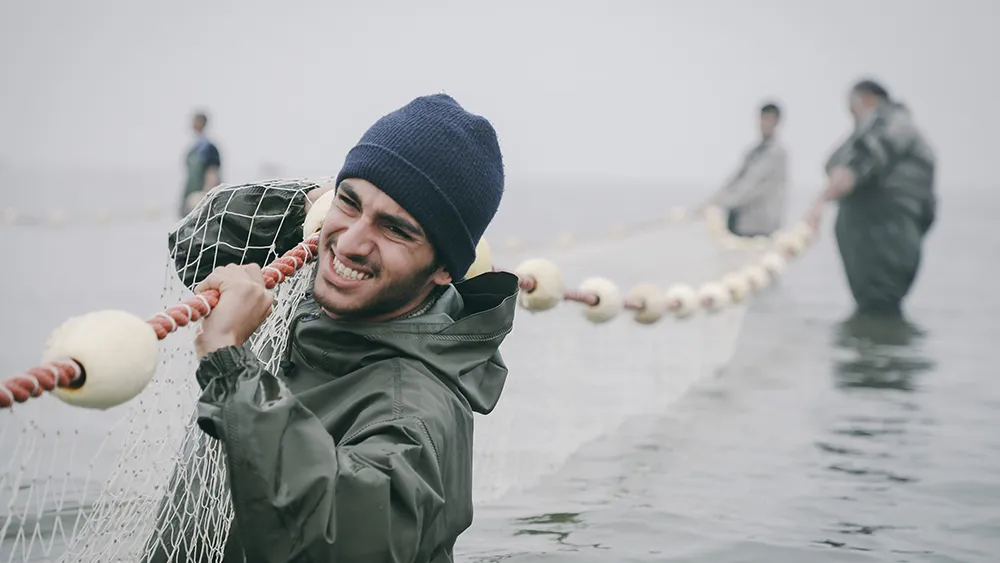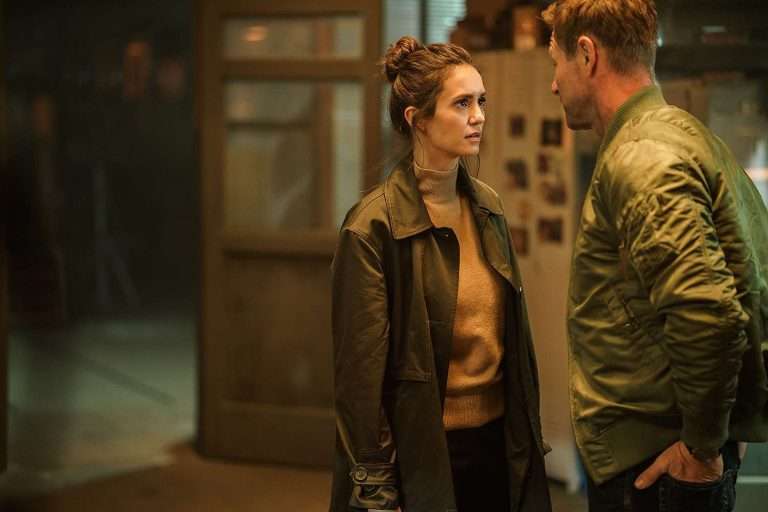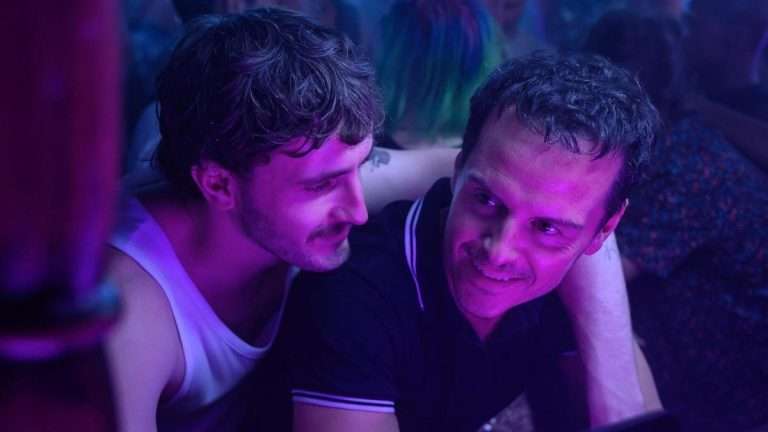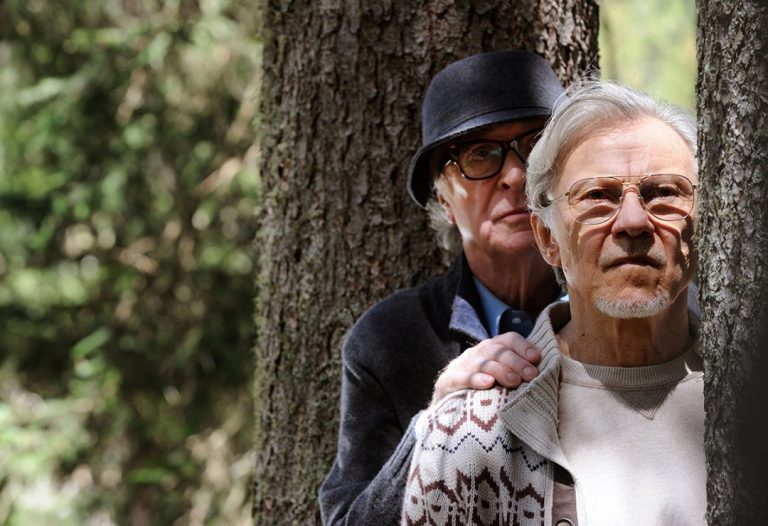Hopelessness is a feeling that permeates every frame of Behrooz Karamizade’s Iranian drama “Empty Nets.” But what elevates it beyond a simple tribulation tale is Karamizade’s surprising ability to maintain a sense of optimism despite this. “Empty Nets” arrives as a compelling drama examining a broad range of societal issues through the lens of a singular idealist – the subtle tragedy found in his slow descent into a world much larger and much darker than he first imagined.
Hamid Reza Abbasi plays Amir, the youthful protagonist of the film, whose unflinching romantic desire to marry his girlfriend Narges, played by Sadif Asgari, serves to ground his decisions over the course of the film with a solid foundation. Their chemistry is believably developed despite what relatively little screentime they share together, Amir constantly swept back to sea, back to the small fishery he works at.
Amir doesn’t start the film working there, however, quite the opposite – he instead has a relatively stable job working for a wedding organization but is fired after an incident in which he spoke out against his boss. This inability to blindly accept authority serves as the catalyst for much of the film’s conflict, as when he does eventually seek employment at the fishery, he is met with equally ruthless, despotic bosses.
It is a simple “save the cat” moment, but one that immediately spells out the effects of financial inequality the “Empty Nets” will go on to deconstruct, as the conflict stems from a customer’s inability to pay for their wedding. This mirrors Amir’s inability to marry Narges for the Romeo and Juliet-esque reason of Narges’s higher social standing. Karamizade’s screenplay is very tight in this regard, but cinematographer Ashkan Ashkani’s visuals, the grey that plagues the entire film, bring the gritty mood of the piece to life.
It is with this element where the film shines, aided by Abbasi being incredibly well suited to conveying Amir’s slowly increasing resentment towards his bosses who, as is metaphorically suggested, have caught and subsequently trapped him in a neverending cycle of obedience and dependency. They run their company like a dictatorship, drawing clear parallels to Iran’s political situation. Director Karamizade was desperate to ensure his first feature was indeed filmed in Iran and surrounded Iranian themes. Crucially, the fishery is no more than a front for extortion-based criminal activity – Abbasi’s simple desire for a little bit of extra cash soon launched him into the uncertain waters of caviar poaching.

Caviar itself serves as a thought-provoking metaphor, the fish eggs serving as a symbol of something valuable, but something youthful immediately thrust into the hands of an exclusive wealthy class. It adds extra depth to what is presented and, bolstered by other symbolism, notably that of the unpredictable, cruel ocean that surrounds the characters throughout the majority of the film, creates a tapestry of ideas worthy of examination.
On the surface, the film is a fairly simple parable: the further Amir sinks, the more the net reveals itself, and the more he is pulled away from his loved ones. But Karamizade constructs nuanced layers of meaning within “Empty Nets” that result in a far more satisfying product, gifting audiences with ideas to chew on long after the credits.
The neo-realistic style makes for a methodically paced film steeped in allegory, with every moment servicing Karamizade’s message. It is an assured, complex portrait of Iranian society that retains subtlety despite the obvious metaphors it constructs. At its core, it retains a sense of naive optimism. Amir’s goal throughout remains untainted by the world around him, as we find ourselves placed squarely in his shoes, desperate for love to prosper.
For a first feature, “Empty Nets,” is a startling achievement, weaving together visual imagery with a focused exploration of ideas, examined through a simple story of power, and the lengths an individual will go to, the hardships they will endure to achieve their goal in a society which seeks to undermine him at every step. It serves as a unique social-realist drama-thriller hybrid that captivates at every level, and whilst it may hit elements that we have seen many times before, it does so in such a restrained and competent way that it becomes hard not to let Karamizade’s flair wash over you.
It will serve as a great starting point for Iranian cinema for many, and whilst it will undoubtedly be a criminally underrated film for the most part, it is one that is more than worthy of a watch. The film posits a world where “money is everything,” and the protagonist’s slow descent to reluctantly discover this universal truth makes for one of the most interesting films of the year so far!



![Touch [2021] Review – Cultural tension arise in sensual, flawed directorial debut](https://79468c92.delivery.rocketcdn.me/wp-content/uploads/2021/07/Touch-1-highonfilms-768x325.jpg)


![Lucy in the Sky [2019]: ‘TIFF’ Review – Never Takes Off](https://79468c92.delivery.rocketcdn.me/wp-content/uploads/2019/12/Lucy-in-the-Sky-768x512.jpg)
